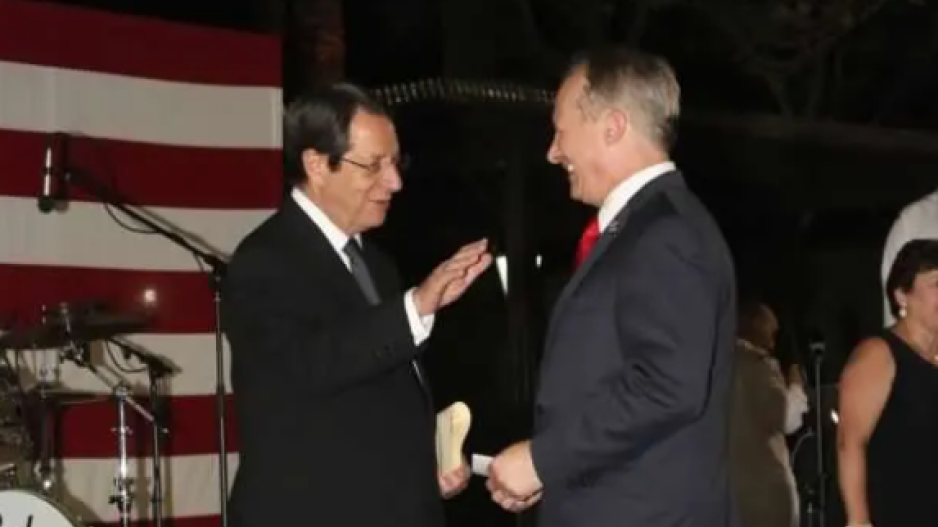Former US Ambassador Calls Anastasiades a "Con Man"
John M. Koenig Reflects on His Strained Ties with Cyprus’s Former President
Former United States Ambassador to Cyprus, John M. Koenig, launched a scathing critique against both the Trump administration and former Cypriot President Nicos Anastasiades, in a recent post on Substack.
Koenig, who served as ambassador from 2012 to 2015, accused the Trump 2.0 government of undermining democracy, suppressing free speech, and eroding international institutions. Addressing senior diplomats still serving under Trump, he questioned how they could maintain their personal integrity while representing what he described as a "predatory" administration. He called on those committed to democratic values to wake up and resign if necessary.
Reflecting on his turbulent tenure in Cyprus, Koenig recalled his stormy relationship with Anastasiades, whom he characterized as a "con man" and "megalomaniac." Although their cooperation had been productive at times, Koenig said mutual animosity ran deep. The breaking point came in early 2015 when Anastasiades decided to visit Moscow, despite a European Union embargo on high-level meetings with Russian officials following the annexation of Crimea.
Koenig said he tried unsuccessfully to dissuade Anastasiades from proceeding with the trip, warning against undermining EU solidarity. However, the Cypriot leader was determined, reportedly driven by concerns over the significant Russian investments in Cyprus's banking sector.
The situation escalated further when opposition leader Boris Nemtsov was assassinated during Anastasiades' visit to Russia. In response, Koenig posted a pointed comment on social media, urging Cyprus to "choose its friends wisely"—a move that infuriated Anastasiades and his pro-Russian allies. Anastasiades went as far as publicly criticizing Koenig on national television, an act that made it clear to the ambassador that his position had become untenable.
Despite the pressures, Koenig emphasized that he chose to leave Cyprus on his own terms, preserving his dignity. He ultimately departed in July 2015, concluding a diplomatic chapter marked by intense personal and political friction.






